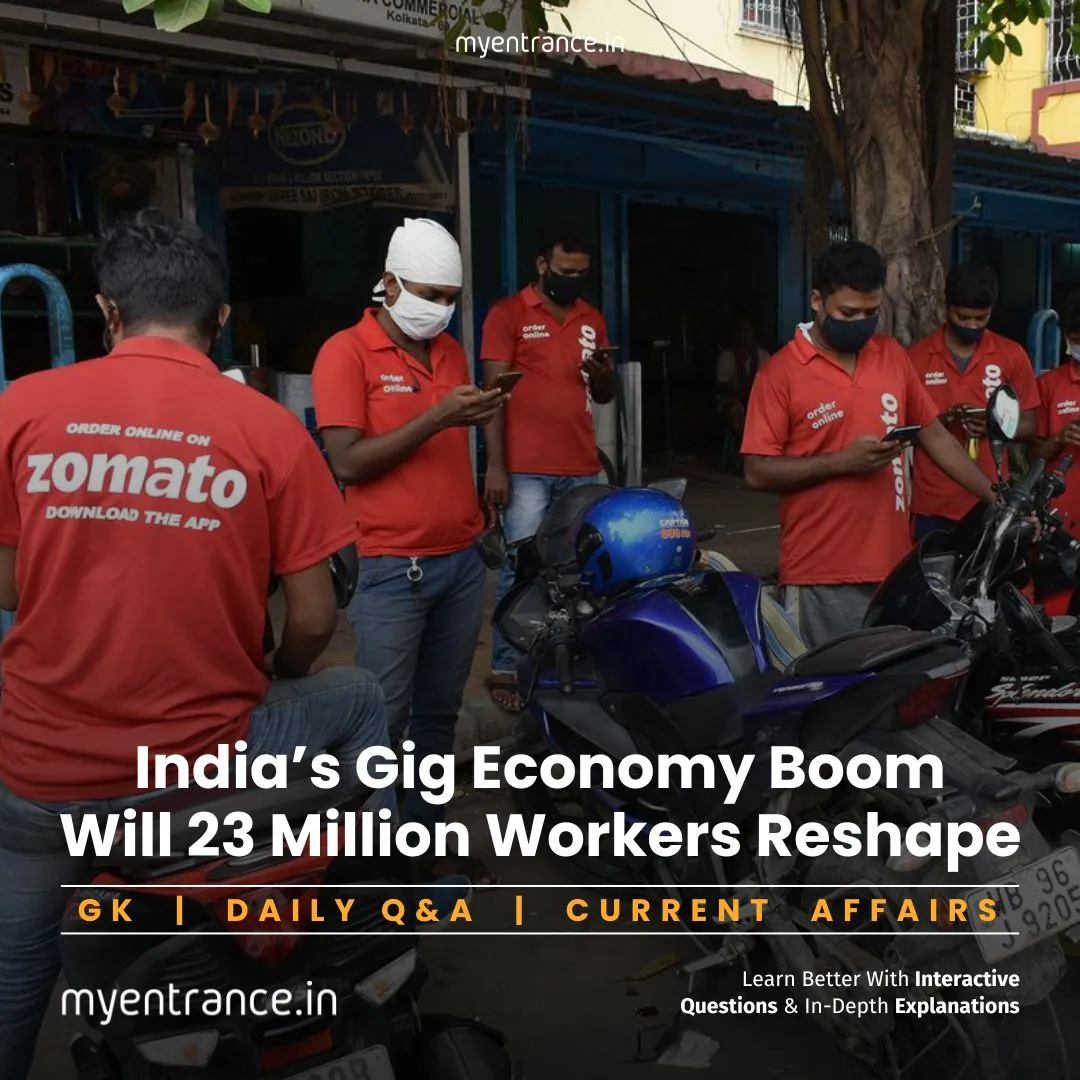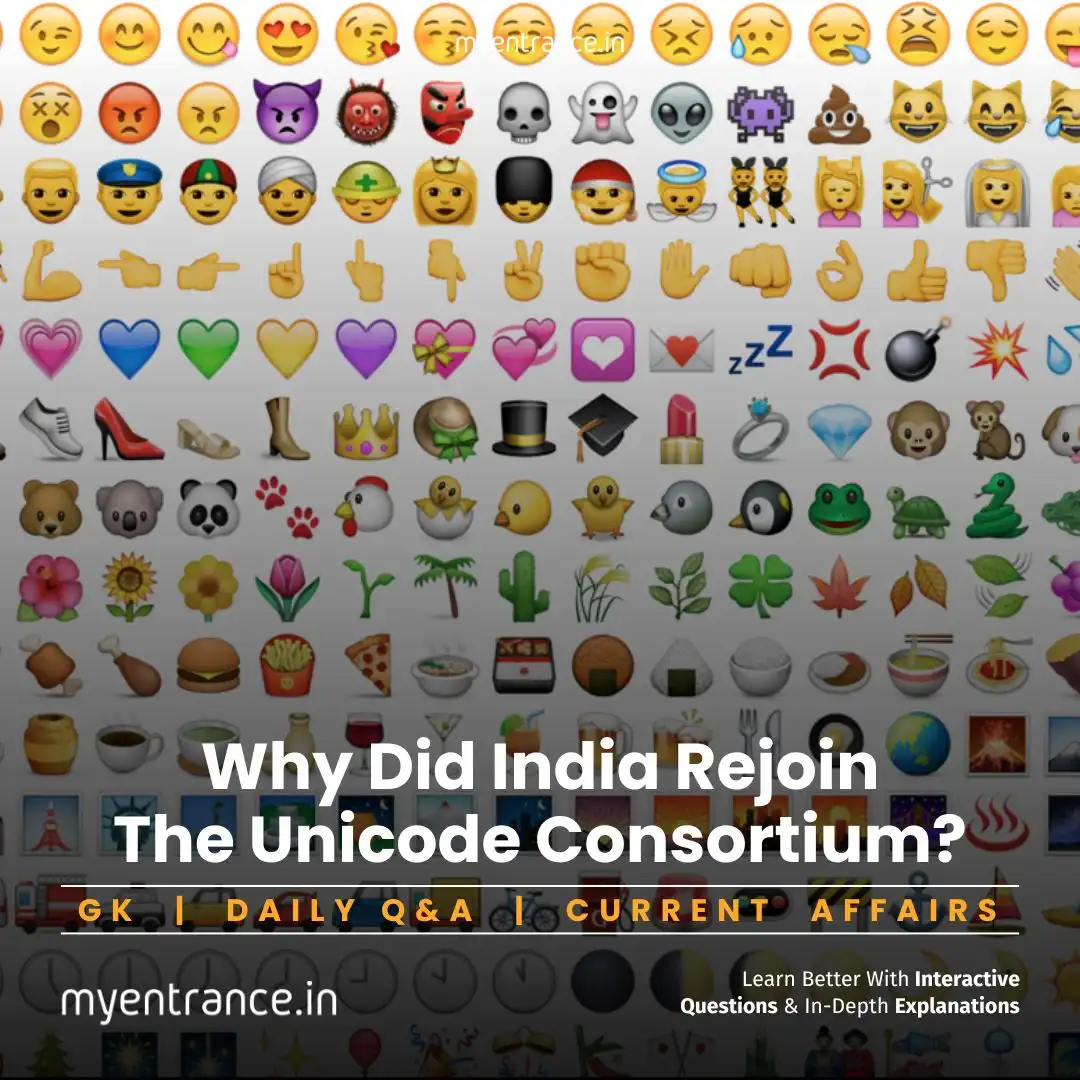Select Language
India’s Gig Economy Boom: Will 23 Million Workers Reshape India’s Economy
India just greenlit bike taxis nationwide, reigniting debates about the exploding gig economy. For exam aspirants, this isn’t just news—it’s a critical topic weaving through labor laws, economy, and social issues.

India’s Gig Economy: What You Need to Know
In a landmark move, the Union Government recently permitted bike taxi services via apps—but only if states approve. This offers relief to operators, especially in states like Karnataka where bans left thousands without income.
Many bike taxi riders are students, low-income earners, or women rejoining work post-pandemic. They rely on this “flexible” income where traditional jobs are scarce.
By 2030, India’s gig workforce could explode to 23 million (from 3 million in 2020), says a V.V. Giri National Labour Institute study. That’s 7% of non-farm workers! But what does this mean for India?
What Exactly is the Gig Economy?
Think short-term, task-based work via apps. The World Economic Forum defines it as digital platforms connecting workers with customers for quick jobs. In India, gig work splits into:
Web-based gigs: Content writing, coding, digital marketing (remote work).
Location-based gigs: Ride-hailing (Ola/Uber), food delivery (Zomato), home services (Urban Company).
Workers get paid per “gig,” skipping the 9-to-5 grind. But is this flexibility a blessing or a trap?
The Two Faces of the Gig Economy
The Upside:
Creates jobs for women and youth.
Formalizes payments and offers work-life balance.
The Dark Side:
No minimum wage or job security.
Zero social security (health insurance, paid leave).
Heatwaves? Floods? Gig workers still deliver.
Hidden discrimination (e.g., delivery riders barred from apartment lifts).
Why “Self-Employed” is Misleading
Calling gig workers “self-employed” saves companies money—no benefits to pay. But scholars argue this is “disguised wage work”: unstable, low-paid, and exploitative. Worse, India’s labour laws (like the Minimum Wages Act) don’t protect them.
New Laws—But Are They Enough?
The 2020 Social Security Code promised gig workers:
Accident and life insurance
Maternity/health benefits
Old-age pensions
States like Rajasthan and Telangana now mandate welfare funds. Yet implementation is weak, leaving workers vulnerable to:
Sudden app deactivations
Unfair algorithms
No collective bargaining rights
Why This Matters for Exams (SSC, PSC, NID, NIFT, etc.):
Current Affairs: Bike taxi policies and gig economy growth are hot topics for GS papers.
Labour Laws: New codes (2020) and state acts (Rajasthan/Telangana) feature in PSC/SSC Polity sections.
Social Issues: Gender empowerment, worker exploitation, and urban poverty link to Essay/Ethics papers.
Design Exams (NID/NIFT): Social impact of tech-driven work (e.g., app design ethics) is crucial.
Economy: Gig economy’s contribution to GDP, employment, and informal sector formalization.
Sample Exam Questions & Answers:
Q1: How does India’s Social Security Code (2020) address gig workers’ needs?
*A1: It mandates life/disability cover, health/maternity benefits, and old-age protection through welfare schemes. A National Social Security Board recommends implementation.*
Q2: Why is the gig economy called a ‘disguised wage employment’ system?
*A2: Workers lack autonomy, face low pay and insecurity, but are labelled “self-employed” to deny them benefits like minimum wage and social security.*
Q3: What percentage of India’s non-agricultural workforce could be gig workers by 2030?
A3: Approximately 7% (as per V.V. Giri National Labour Institute).
Q4: Identify two key challenges faced by women in India’s gig workforce.
*A4:
Balancing domestic duties with unstable work hours.
Lack of maternity benefits and childcare support.*
Q5: How do state laws in Rajasthan protect gig workers?
A5: The Rajasthan Act (2023) requires employers to pay a monthly welfare cess for worker benefits like insurance and skill development.
Get 3 Months Free Access for SSC, PSC, NIFT & NID
Boost your exam prep!
Use offer code WELCOME28 to get 3 months free subscription. Start preparing today!















